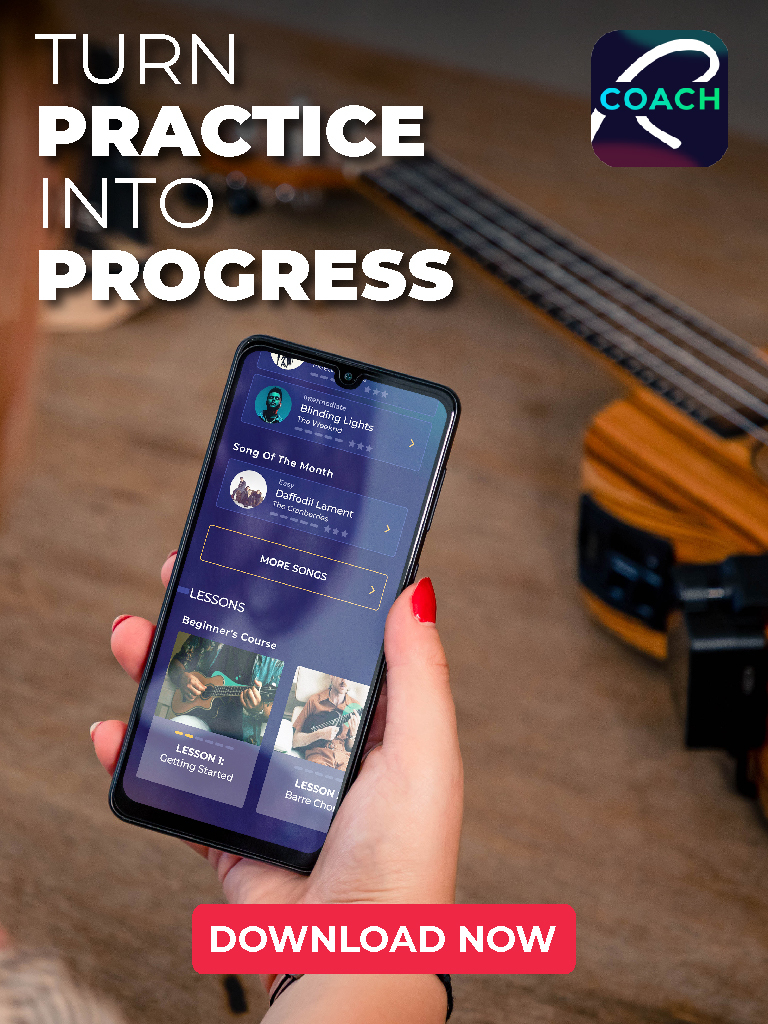
The start of 2021 is a perfect opportunity to set up an effective year-long practice routine.
I know that for some the mere mention of that word can be a turn off. Yup, many say it’s not fun, tedious, etc. And perhaps there is some truth in that. But let’s be clear: deliberate practice is the only way to get significantly better at guitar (or at anything else for that matter). Understand that there are no shortcuts, no other way. Practising is the way. And practicing smart will produce fantastic results over a stretch of time. Here is how to set up an effective year-long practice routine.
Be specific but realistic
For practice to be truly effective you need to set up specific and measurable goals that are also realistic. For instance, becoming a guitar god in eight months is not a realistic goal for anybody. Learning all the modes of the harmonic minor scale in all positions in fourth months is a realistic goal for some. Be realistic about where you are as a guitar player, and understand how much time you can dedicate to practising in a consistent fashion. Getting a good guitar teacher will also work wonders for not only improving but assessing your playing goals for 2021.
Focus
Make sure that in 2021 you are focused for your practice session. That practice session can last 45 minutes to one hour or even 15 minutes if that’s all you have. But you have to focus exclusively on practicing while you are doing it. Otherwise, it’s not very effective. That means no phone, no tv, etc. Make it a priority of spending quality time with the instrument in order to improve.
Be consistent
Practicing for 15 minutes on Monday and 10 on Friday week after week is not gonna work. You need to practice regularly. How regularly? Everyday. Yup, that is the ideal answer. And please know that it is much better to practice 30 minutes every day for six days than three hours once a week.
Can’t practice every day? How about three or four times a week? If you practice regularly, you will improve. And nothing is more regular than every day.
Stick to your goal, but make it flexible and have fun
To get anywhere you need a plan, a map. The same is true for practising. But make sure there is a bit of flexibility. Remember that what does not bend, breaks. Also, have some fun with your practice. For instance, if you just learned the C major scale, now try going on an online jamming website or YouTube and pull up a C major jamming track. Besides being fun, you will try what you just learned in context.
Track your practising with a metronome
One of the best reference tools for practising is the metronome. Even though some say that the metronome is medieval torture, there is no better tool for tracking your progress.
You can gradually increase the speed of whatever you are trying to execute until you reach your goal. It can be a riff, a solo, rhythm, you name it. Do it slow first. Speed up little by little once you can play it slowly and then you can reach the desired speed.
Some teachers will say you should use a metronome all the time when practicing. Others say that it should be used for certain exercises and drills. Whatever you do, make sure you are incorporating the use of a metronome at some point in your practice session.
Have a set schedule and place to practice
Even if you can only practice for 15 minutes a day, it is vital to set aside a specific time and place for it. It could be after work, before bedtime, during your coffee break, etc. The point is to have a part of the day reserved for practicing.
This works wonders for your progress, as your brain will know that is the specific time you practice. If you can set a time and place for practicing and keep at it regularly for a while, it will become a habit. And once that happens, you will truly feel the progress you make.
Practising is a life-long endeavour. Setting up an effective year-long practice routine is a great way to approach it. All of the guitar heroes went through intense practice years. Many still practice today, They say that to be world-class at something you need to spend at least 10,000 hours of deliberate practice.
And even if you just want to play some tunes at the bar on Friday night with some friends, practice is the only way to get there. Now, if you do want to be the next Steve Vai… better schedule in six to eight hours a day, every day, for the next ten years.

